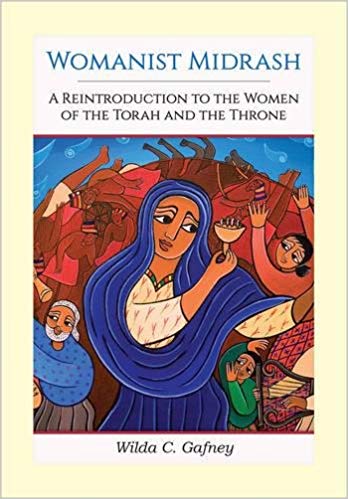
For those of us who experienced a traumatic childhood because of abuse by a father, the thought of God as our Mother is comforting. Such an image of God feels approachable, as God’s gentle hands reach out to us and we place our hands in Hers. Perhaps that makes no sense to some, but for the rest of us, we see any father image as threatening and frightening. In some ways, we need the mothering aspects of God.
I have been reading a fascinating book, Womanist Midrash, by Wilda Gafney. Womanist Midrash is an in-depth and creative exploration of the well- and lesser-known women of the Hebrew Scriptures. Using her own translations, Gafney offers a midrashic interpretation of the biblical text that is rooted in the African American preaching tradition to tell the stories of a variety of female characters, many of whom are often overlooked and nameless.
I am fascinated by her writing and have used it as a resource for teaching my Sunday School class which focuses on the stories of Biblical women, women who often remain nameless, women who inspire us, women who live through horrific violence, women whose stories mirror our stories. From these women — Rahab, Shiphrah and Puah, Jephthah’s Daughter, Deborah, Huldah, so many women whose stories enrich our faith — we have heard the voice of God and have experienced God in new ways.
Today, I share a lovely passage from Womanist Midrash:
She, the Spirit of God , She-who-is-also-God, at the dawn of creation fluttered over the nest of her creation as He, the more familiar expression of divinity, created all. They, Two-in-One, are the first articulations, self-articulations of God in the Scriptures. God is female and male, and when God gets around to creating creatures in the divine image, they will be male and female, as God is. Feminine language for God occurs in the text repeatedly. This means that feminists and womanists advocating for inclusive and explicitly feminine God-language are not changing but restoring the text and could be considered biblical literalists. (Wilda Gafney, Womanist Midrash, page 20)
May we find the Divine Feminine in our lives. May God continue to open our hearts to new images of the Divine. May we experience the care and nurture of God our Father and God our Mother.

Lovely. And I do agree with the premise though I think that often we don’t recognize that their are other women (and I am one) who had abusive human fathers and clung to the God as Father image to believe that there was an alternative. I never use name language with divinity but I have found many people who hold it precious because it was such a childhood solace.
LikeLike